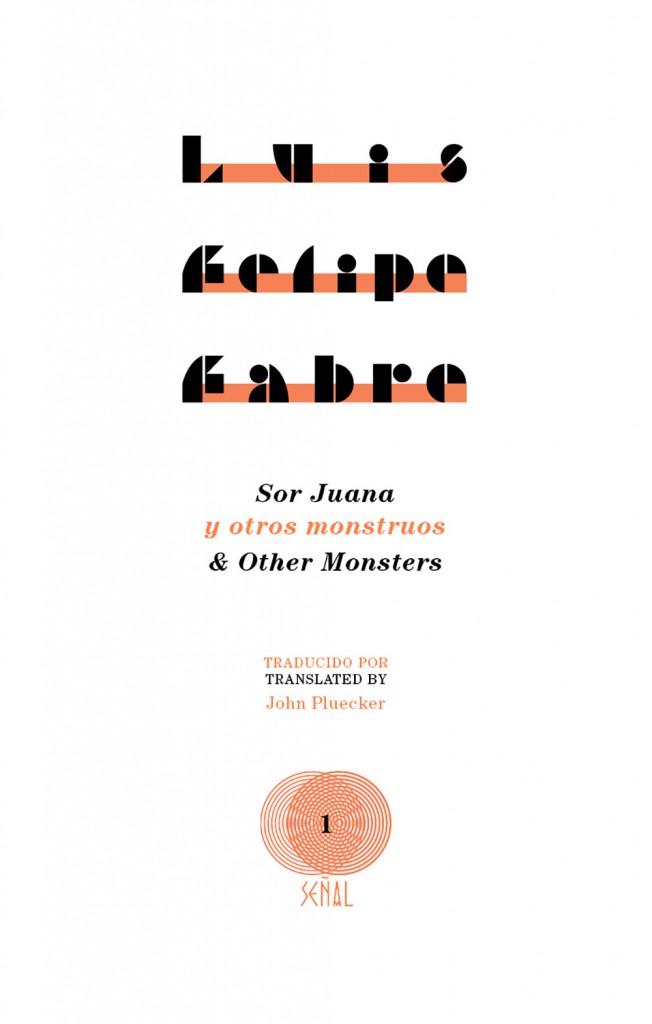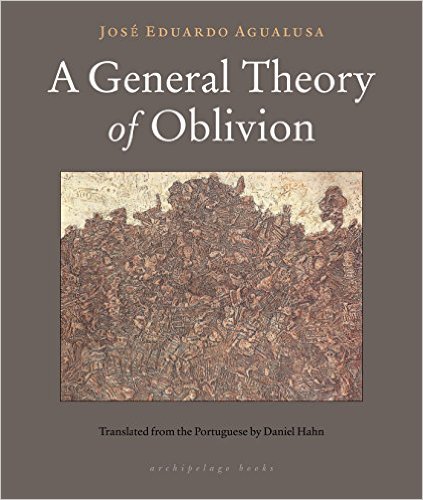Mark Kongstad, Am I Cold (Serpent’s Tail, November 2015). Translated by Martin Aitken—review by Beau Lowenstern, Editor-at-Large Australia

Am I Cold throws you into a world of hedonism and extravagance. It is Danish author Martin Kongstad’s first novel to appear in English, and his second body of fiction after 2009’s short story collection Han Danser På Sin Søns Grav (He Dances on his Son’s Grave). The story follows Mikkel Vallin, a recently-divorced, recently-unemployed writer who—toeing the line between unreliable narrator and protagonist—takes the reader through the moonlit halls of Copenhagen’s artistic elite as he attempts to find existential clarity through a lens of sex, alcohol and debauchery. Loosely held together through Mikkel’s polemic, endeavoring to destroy “coupledom” and the trappings of monogamy, the novel endures in a pre-2008 micro bubble of Denmark and seductively draws you into a chilling, often hilarious world that somehow exists in spite of itself.
As one of the few English-language translators who works in both directions (that is, translating into English and into Danish), Martin Aitken performs an adept transformation of Kongstad’s prose in English. He is able to recreate the frank, disinterested narrative tone of the Danish throughout, as Mikkel leads us from wild, drug-fuelled parties and opulent nights at Noma to the greying streets of the Józsefváros district in Budapest. Both author and translator complement each other to create an important sense of time without which, the reader would feel hopelessly stranded.
‘Don’t you ever tire of all those old stories?’ Inger said.
Peter Borch-Jensen took his time before smiling.
‘There are no new stories,’ he said. ‘Only new people to tell the old ones to.’
Retrospective overtones are littered throughout the novel, with its characters often so self-obsessed as to be alienating–both to the reader and to themselves. They exist in a time capsule of decadence and indifference; the author’s not-too-subtle jab towards the careless naivety of Europeans in the months leading up to the 2008 market crash. Indeed, Mikkel speaks for the masses when he remarks that he hasn’t even heard of Lehman Brothers following the news of their bankruptcy on the radio, and similarly cannot comprehend when his friend loses a two hundred million dollar fortune in the aftermath, telling him to have more champagne.
This bored apathy runs rampant throughout Kongstad’s Copenhagen and envelops its inhabitants in an alienating shroud. Mikkel’s crisis of identity again echoes the masses, stating:
I live to forget myself.
His misgivings are not uncommon, nor can we blatantly reproach him for having them, since they resemble too much our own humanness.
Despite this, Mikkel, his wife, his girlfriend’s new husband, his young son Charlie; they remain distant from the reader and unlovable, embodying the inertia we so often feel when faced with the gravity of our decisions. We understand their pain, yet we cannot empathize with them by virtue of Kongstad’s brilliant prose and his skill that leaves judgment entirely in the reader’s hands.
I had met Lisa twice, and she reminded me of a trip across the FM band: dance music, debate, opera, local radio. Moods that came and went.
Empty and inert, their lives play out on a stage removed from our own, yet are at once terrifyingly real. Just as the title hangs limply, deprived of its ability to question, so too do Kongstad’s characters continue their endless, cyclical hedonism, dropping in and out of orbit of our own questionable existence. Am I Cold pushes you off the cliff without warning—and, somehow, without you realizing—entertains you all the way down to the rocky depths below.
***
Luis Felipe Fabre, Sor Juana and Other Monsters (Ugly Duckling Presse, 2015). Translated by John Pluecker—review by Alexis Almeida, Assistant Editor.

In the final part of his translator’s note for Luis Felipe Fabre’s Sor Juana y otros monstruos [Sor Juana and Other Monsters], forthcoming from the Señal Series, co-curated by Ugly Duckling Presse, BOMB Magazine, and Antena John Pluecker asks a question that feels ever-present in the text: “What does it mean to be funny and playful now with all these ghosts milling around?”
The book itself, which deals with the figure of Sor Juana—a 17th century nun, poet, and self-taught scholar who has become an iconic figure in the history of Mexican and Latin American literature—may not be entirely decided on this point. But what is clear is its will to revel in rumination, humor, and play. What constitute as ghosts, or hauntings of the past, and what force do they have when sutured together with the anxieties, desires, and (culturally-induced) blindnesses of the present? The book delights as much in orbiting these questions as it does in signaling their limitations.
True to its own description—the title’s byline is Una ponencia en verso seguida de tres mashups en homenaje [An Academic Paper in Verse Followed by Three Mash-Ups in Homage]—the book begins with a parody of sorjunaistas, or Sor Juana scholars, who struggle to maintain both distance from each other and a tenuous closeness to their subject:
All Sor Juana Scholars differ on something. Differ
among themselves. Differ
on something, usually everything.
These efforts are quickly exposed as shallow contrivances, and lines like “…it is possible to deduce / that the essential task of Sor Juana scholars / is to differ with what other Sor Juana scholars say” conjure the painfully familiar gesture of academics appropriating the legacy of historical figures to benefit their own needs.
Here, the irony Fabre illustrates becomes apparent: Sor Juana became a nun to continue reading and writing as a woman, to avoid assimilation into the dominant cultural milieu, and here her legacy is quickly translated into the increasing cultural capital of others. But when Fabre begins not only listing the assertions of the sorjuanistas, but also the conferences, papers, debates they stage in “order to rehearse their differences in regards to what other / Sor Juana scholars say,” the text rises into new registers of hilarity, satire, and absurdity, until the scholars can finally agree on one thing: “Sor Juana was a monster.”
Many parts of this book made me laugh, and the laughter always felt near, if not within the realm of social critique. What is monstrousness, according to Fabre? He could, of course, be playing off its connotations with femininity, the monstrous, irrational, often bodily otherness that would cause one critic to say: “…in these poems Sor Juana displays / the full range of her feelings / on the topic of her monstrous offspring / and, thus, / her own monstrosity…”
Or the more general and unknowable aspects of monstrousness, its fearsome and haunting qualities that seem to mold everything to themselves: “as the Respuesta progresses, / Sor Juana continues to provide evidence of / the particularities of her monstrosity…”. Or the actual monsters that ghost Sor Juana’s own poems, such as the phoenix, which is spliced into the text, and translated by John Pluecker as: “To see the Phoenix, we’re / at your orders, just two quarters…!” Though the speaker playfully suggests that the sorjuanistas agree that she is a “Monster among women and Mexican prodigy,” he also suggests this may be a misreading, that she may better approximate an enigma, or an esfinge, who “in light of the inability of Sor Juana scholars / to respond coherently to her enigma / …will devour the Sor Juana scholars, now with no metaphors / to mediate.”
In his translator’s note, referring directly to Fabre’s lines “What kind / of monster is it whose power / resides in language?” John Pluecker offers another take: “A translation begins with an enigma. A mystery. Sor Juana posits an enigma here: an unanswerable question.” Later, when discussing Fabre’s decision to use seventeenth-century octosyllabic tetrameter (the meter Sor Juana wrote in), as well as pulp novels, horror movie trailers, and pompous academic papers to write these poems, he says, “Poetry (& translation) is just such a monster. Not neat or clean, but dirty and dangerous.”
Because these poems are very much invested in collapsing the past and the present—aside from the book’s initial parody of the sorjuanistas, the Enigmas mentioned so often throughout the text also refers to the title of Sor Juana’s own series of riddles (also forthcoming in translation from UDP), and the last section of the book is composed of three “mash-ups” of Sor Juana’s language—Pluecker acknowledges this messiness, being unafraid to acknowledge both Sor Juana’s unique sense of rhythm and meter, and also Fabre’s desire for his poems to be read as comic or burlesque. I really admire the translation, which feels both fluid in a way that incorporates “the particularities of [Sor Juana’s] monstrosity” and Fabre’s sense of play.
“One risk is for the translator to lose their aura of mastery,” Pluecker suggests, and perhaps this felt like one of Fabre’s main ideas: to trust the aura, or the illusion of mastery, especially over the past, is to ignore the mysterious and vital way it haunts the present, brings itself to bear in new ways. How can Sor Juana be reimagined “queerly by a poet ensconced in the heart of Mexico City’s historic (and elite) Condesa neighbhorhood”? And how can this reimagining defy the market demands for fluency, univocality, erasure? This book allows for this enigmatic process to occur, while still acting as an elusive champion of Sor Juana’s (many) ghosts, at least enough for them to “…fly above the night, ascending – / gorgeous and monstrous – / once more toward the spheres.”
***
José Eduardo Agualusa, A General Theory of Oblivion (Archipelago Books, December 2015). Translated by Daniel Hahn—review by Yardenne Greenspan, Editor-At-Large Israel

It’s easy to imagine how, in a country like Angola—colonized for so many years, gaining independence only to find itself in the midst of a decades-long civil war, suffering of horrifying living conditions in spite of having one of the fastest growing economies in the world—magical realism would be the natural choice of its literary scene. As one character says about Luanda, the capital, in which this book takes place, “I’ve seen things in this city that would be too much even in a dream.”
But none of the events in A General Theory of Oblivion are magical, per se. The book is, in fact, a fictitious novel based on the journals of Ludo, a woman with a traumatic past who loses her sister and brother-in-law—with whom she lives—and subsequently shuts herself in her apartment out of fear of the world, incarcerating herself for several decades. As she lives from the “land” of her balcony, using her brother-in-law’s stolen diamonds to lure and hunt pigeons, she unknowingly brings about the immense wealth of an ex-political prisoner while delaying the relationship of a Communist activist and a Portuguese citizen. Her brother-in-law’s former partner-in-crime finds himself in hiding among the Mucubal People, taking an active part in this population’s fight for survival among the chaos. Ludo inspires a street brat involved in a gang of thieves to reform and take responsibility for his own future and hers.
Despite its ostensible resistance to the genre, life in Angola during the civil war and the revolution is perceived in markedly magical realistic terms. The barking of Phantom, an albino German shepherd, behind the wall blocking off Ludo’s apartment, is perceived by the neighbors as belonging to an actual phantom dog. When Ludo snatches chickens from a neighbor’s balcony, everyone agrees it must be the work of a mythical goddess. An enraged guard attempts to stab the detective who made his life miserable using a fake, plastic knife.
A case of mistaken identity leads to the “disappearance” of a French national while a snoopy journalist specializing in disappearances goes free, available to bring Ludo news of her daughter, put up for adoption as an infant. Everyone in Angola seems to run into everyone else in the span of thirty-plus years, through—to use the name of one chapter—“the subtle architecture of chance,” creating a rich tapestry of lives and stories, and conveying in possibly the most accurate way the confusion and surrealism of life in wartime.
But this is also a story of awakening and recovery: Ludo’s world shrinks as she shuts herself in, slowly getting rid of her furniture and losing all sense of the outside world as the phone line gets disconnected, her radio dies, and the novels are burned for cooking. She gradually loses her eyesight, but finds that when she returns to the outside world it is with a newfound sense of clarity, safety and optimism. She is finally ready for the future, as well as for the present moment.
The brilliance in Daniel Hahn’s translation is in his ability to create an English version that flows naturally and confidently while never giving the false impression of being an original. He smoothly blends together American idioms (“Ace, pal. Tonight you crib with us.” “I’m talking to you, for fuck’s sake!”) with localized metaphors (“While night twisted about, out there, like a boa constrictor,” “You’re going to die, reptile!” “On one of those rainy cacimbo mornings”), creating a translation that is a unique pleasure: it is both strongly tethered to and apart from the expert storytelling of the original. While I did occasionally find myself losing the thread of so many interconnected stories, A General Theory of Oblivion remains an accomplished epic spanning time, politics, and turmoil, told in brief, breathless chapters.
*****
Read more from New in Translation:

